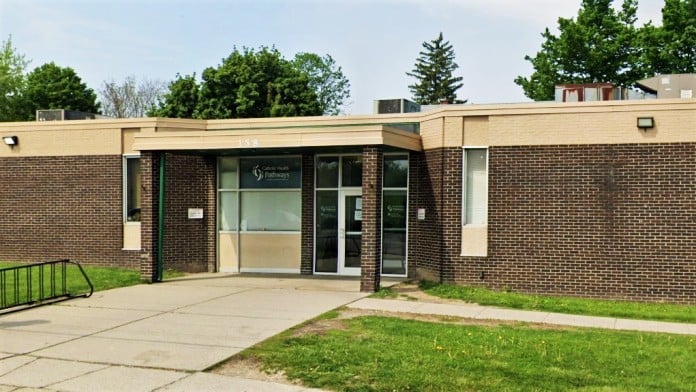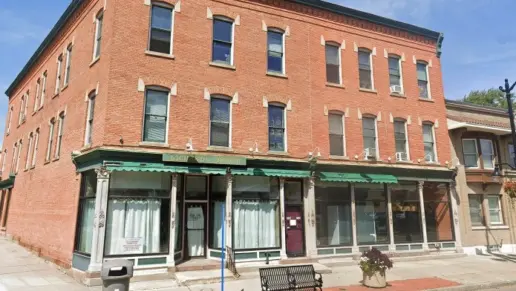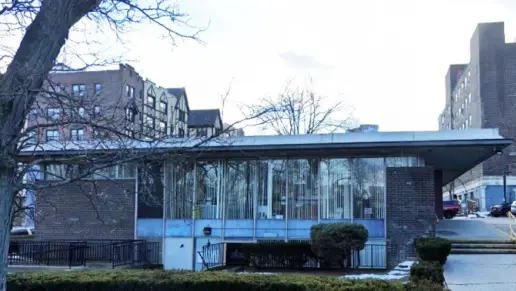I am in deep gratitude to the Pathways program and employees. Professional services and a highly qualified staff, made recovery possible and successful. Thank you! I highly recommend the Pathways program to anyone seeking help and assistance, for they will discover compas ...
About Pathways
Pathways is a private outpatient drug rehabilitation center in Buffalo, New York, and a part of the Department of Sisters of Charity Hospital in the Catholic Health network. They offer both medication assisted treatment and counseling services for adults dealing with opioid addiction.
Pathways offers 24 hour support and medical care. A doctor’s referral is not required to receive care. Their MAT programs include methadone, Vivitrol, and Suboxone options managed under the supervision of qualified staff. A doctor may provide a prescription for opioid addiction as part of their treatment regimen. You may also be referred for inpatient care at another facility within the system as needed.
The clinic offers traditional care and other services like spiritual and faith based counseling, as well as men’s and women’s group counseling, therapy, and services for recovery. They also provide help for pregnant women from addiction, trauma, or abuse. They accept payment from either the customer directly or Medicaid. They offer a variety of financial assistance options for those who qualify.
Patients and clients have mixed views on the clinic. Some have said that front desk staff and security could be more cordial, while others have remarked that they are happy the program is working to curb their addiction behaviors.
Latest Reviews
Rehab Score
Gallery

Location
Other Forms of Payment
Self-pay involves paying for treatment out of your own pocket. You can use savings or credit, get a personal loan, or receive help from family and friends to fund your treatment. If you don't have insurance or your insurance plan doesn't cover a specific program, self-pay can help ensure you still get the care you need.
Medicaid is a state based program that helps lower-income individuals and families pay for healthcare. Medicaid covers addiction treatment so those enrolled can use their coverage to pay for rehab. When a program accepts Medicaid the client often pays very little or nothing out of their own pocket.
Addiction Treatments
Levels of Care
Treatments
The goal of treatment for alcoholism is abstinence. Those with poor social support, poor motivation, or psychiatric disorders tend to relapse within a few years of treatment. For these people, success is measured by longer periods of abstinence, reduced use of alcohol, better health, and improved social functioning. Recovery and Maintenance are usually based on 12 step programs and AA meetings.
When you choose drug rehab in New York, you'll participate in a variety of treatments that are designed to help you live a drug-free lifestyle. Common methods of treatment include group, individual, and family counseling, medication management, nutrition, exercise, and management of co-occurring mental health disorders.
Opioid rehabs specialize in supporting those recovering from opioid addiction. They treat those suffering from addiction to illegal opioids like heroin, as well as prescription drugs like oxycodone. These centers typically combine both physical as well as mental and emotional support to help stop addiction. Physical support often includes medical detox and subsequent medical support (including medication), and mental support includes in-depth therapy to address the underlying causes of addiction.
Substance rehabs focus on helping individuals recover from substance abuse, including alcohol and drug addiction (both illegal and prescription drugs). They often include the opportunity to engage in both individual as well as group therapy.
Programs

Clinical Services
Whether a marriage or other committed relationship, an intimate partnership is one of the most important aspects of a person's life. Drug and alcohol addiction affects both members of a couple in deep and meaningful ways, as does rehab and recovery. Couples therapy and other couples-focused treatment programs are significant parts of exploring triggers of addiction, as well as learning how to build healthy patterns to support ongoing sobriety.
Research clearly demonstrates that recovery is far more successful and sustainable when loved ones like family members participate in rehab and substance abuse treatment. Genetic factors may be at play when it comes to drug and alcohol addiction, as well as mental health issues. Family dynamics often play a critical role in addiction triggers, and if properly educated, family members can be a strong source of support when it comes to rehabilitation.
Group therapy is any therapeutic work that happens in a group (not one-on-one). There are a number of different group therapy modalities, including support groups, experiential therapy, psycho-education, and more. Group therapy involves treatment as well as processing interaction between group members.
In individual therapy, a patient meets one-on-one with a trained psychologist or counselor. Therapy is a pivotal part of effective substance abuse treatment, as it often covers root causes of addiction, including challenges faced by the patient in their social, family, and work/school life.
Amenities
-
Private Setting
Contact Information
158 Holden Street
Buffalo, NY 14214


